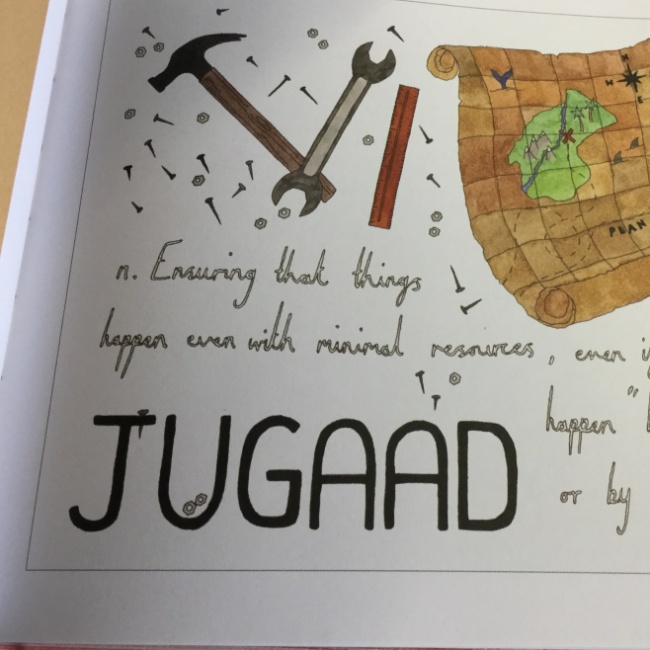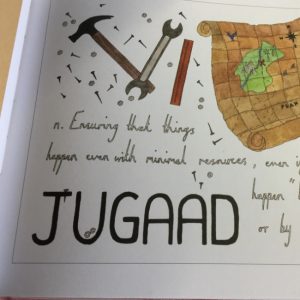Sanders writes: “In our highly connected and communicative world, we have more ways than ever to express ourselves, to tell others how we feel, and to explain the importance or insignificance of our days. The speed and frequency of our exchanges leave just enough room for misunderstandings, though, and now perhaps more than ever before, what we actually mean to say gets lost in translation. The ability to communicate more frequently and faster hasn’t eliminated the potential for leaving gaps between meaning and interpretation, and emotions and intentions are misread all too often.”
The words in this book may be answers to questions you didn’t even know to ask, and perhaps some you did.

Words include hiraeth – a Welsh word meaning, “a homesickness for somewhere you cannot return to, the nostalgia and the grief for the lost places of your past, places that never were.” Sanders adds: “Hiraeth … is a kind of homesickness that the Welsh feel for the Wales of the past, and is tinged with a healthy dose of sadness and longing.”

Then there’s jugaad, which in Hindi means “ensuring that things happen even with minimal resources, even if they happen ‘by hook or by crook’.”
“Jugaad has all but become a movement. Solving everyday problems with a combination of frugal innovation and local intelligence, perhaps even bending the rules slightly, brings people’s creativity and improvisational skills to the surface.”

In Greek people talk about meraki, pouring yourself wholeheartedly into something, such as cooking, and doing so with soul, creativity, and love. “When you’re giving your all, the end result is usually a great one. The concept of meraki has obviously grown up around the Greek culture, which seems to emphasize a thoughtful kind of passion and an appreciation for the small things,” says Sanders.











